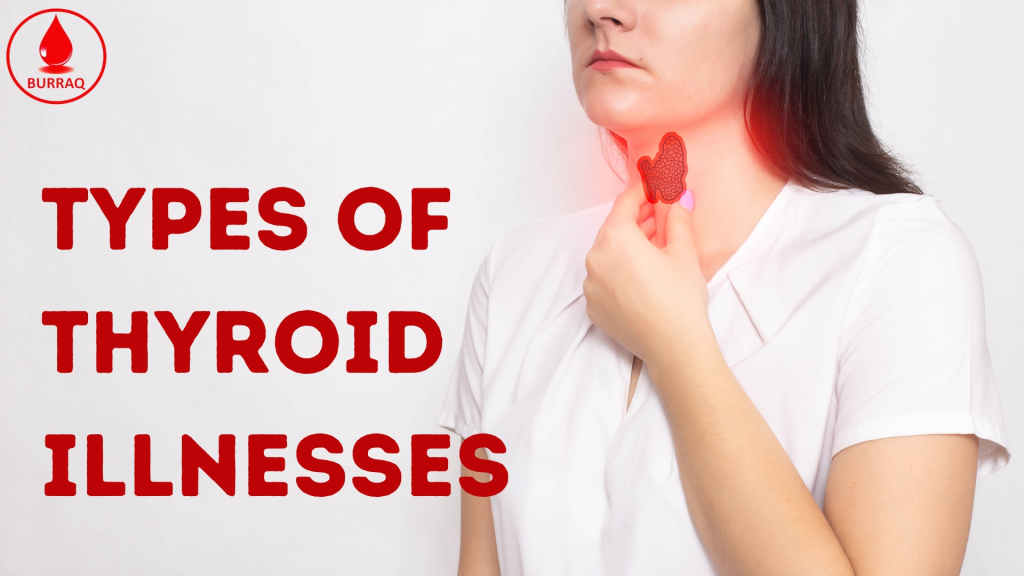 Home
About Us
Treatments
Blogs
Contact Us
Book Appointment
Home
About Us
Treatments
Blogs
Contact Us
Book Appointment
Thyroid disorders, including hypothyroidism and hyperthyroidism, are more common than you might think. Your thyroid affects many aspects of your body’s metabolism, energy levels, and overall well-being. It's crucial to know how to protect your thyroid and manage any related health concerns for a better quality of life.
Learn More
Your thyroid is a small butterfly-shaped gland located at the base of your neck. It produces hormones that regulate metabolism, energy, and the function of many organs in your body. Thyroid imbalances can lead to serious health problems, such as weight gain, fatigue, and changes in mood and metabolism.
The most common thyroid issues are hypothyroidism (underactive thyroid) and hyperthyroidism (overactive thyroid). Both can lead to significant health complications, but with proper care and management, thyroid disorders can be controlled. Monitoring thyroid hormone levels and maintaining a healthy diet are essential for managing thyroid health.

Hypothyroidism, an underactive thyroid condition, arises when the thyroid gland fails to produce adequate thyroid hormones. Often linked to Hashimoto’s thyroiditis or iodine deficiency, it can lead to a sluggish metabolism, fatigue, weight gain, and cold sensitivity. Managing hypothyroidism typically involves hormone replacement therapy to restore thyroid hormone levels and alleviate symptoms, improving overall well-being and quality of life. Early diagnosis and treatment play a crucial role in preventing complications and promoting optimal thyroid function.
Hyperthyroidism, an overactive thyroid condition, results from excess production of thyroid hormones. Often associated with Graves’ disease or thyroid nodules, it can lead to rapid heartbeat, weight loss, anxiety, and heat sensitivity. Treating hyperthyroidism may involve medication, radioactive iodine therapy, or in some cases, surgery, aiming to normalize thyroid hormone levels and alleviate symptoms. Timely intervention is essential to prevent potential complications and restore a balanced thyroid function for improved overall health.
Hashimoto’s Thyroiditis is an autoimmune disorder where the immune system mistakenly attacks the thyroid gland. This chronic inflammation leads to reduced thyroid hormone production, resulting in hypothyroidism. Common symptoms include fatigue, weight gain, and dry skin. Treatment involves hormone replacement therapy to manage thyroid hormone levels and alleviate symptoms. Regular monitoring and medication adjustment are often necessary to effectively manage Hashimoto’s, enhancing quality of life and minimizing long-term health risks.
Graves’ Disease, an autoimmune condition, triggers excessive thyroid hormone production by stimulating the thyroid gland. This results in hyperthyroidism, leading to symptoms such as rapid heartbeat, weight loss, and anxiety. Graves’ Disease can also cause protruding eyes (exophthalmos) due to immune system effects on the tissues around the eyes. Treatment options include medication, radioactive iodine therapy, and surgery. Managing Graves’ Disease effectively is crucial to prevent complications and restore thyroid function to a balanced state.
Thyroid Nodules are abnormal growths or lumps that form within the thyroid gland. While the majority are benign, some can be cancerous. These nodules can cause a noticeable lump in the neck or lead to changes in voice. Diagnosis involves imaging tests and fine-needle aspiration to determine if further evaluation or treatment is necessary. Monitoring and, if needed, treatment is essential to address any potential complications and ensure thyroid health.
Thyroid Cancer originates from the abnormal growth of cells within the thyroid gland. Types include papillary, follicular, medullary, and anaplastic thyroid cancer. Detectable as a lump in the neck, symptoms can include difficulty swallowing or changes in voice. Treatment involves surgery, radioactive iodine therapy, and, in some cases, targeted therapies. Early detection and intervention are crucial to manage thyroid cancer effectively and improve the prognosis for individuals affected by this condition.
Thyroiditis is inflammation of the thyroid gland that can cause temporary disruptions in thyroid hormone levels. Types include Hashimoto’s thyroiditis, postpartum thyroiditis, and subacute thyroiditis. Symptoms vary but may involve neck pain, fatigue, and changes in thyroid function. Treatment focuses on managing symptoms, often through pain relief, hormone therapy, or addressing underlying causes. Thyroiditis is typically self-limiting, and with appropriate care, most individuals can experience a full recovery of thyroid function.
Congenital Hypothyroidism is a condition present from birth, resulting from an underdeveloped or nonfunctional thyroid gland. Without timely treatment, it can lead to developmental and cognitive issues. Newborn screening is crucial for early detection. Hormone replacement therapy is initiated promptly to normalize thyroid hormone levels and prevent complications. With timely intervention, children affected by congenital hypothyroidism can lead healthy lives and achieve normal growth and development.
Subclinical Thyroid Dysfunction involves subtle alterations in thyroid hormone levels that often go unnoticed. Subtypes include subclinical hypothyroidism and subclinical hyperthyroidism. While symptoms may be minimal, monitoring and potential treatment are recommended, especially if risk factors are present. Addressing subclinical thyroid dysfunction can help prevent its progression to more noticeable thyroid issues and ensure optimal thyroid function for overall health and well-being.
Iodine Deficiency Disorder stems from inadequate dietary intake of iodine, an essential nutrient for thyroid hormone production. Insufficient iodine can lead to thyroid dysfunction and related health problems. Common consequences include goiter, an enlarged thyroid gland, and potential thyroid hormone imbalances. Ensuring sufficient iodine intake through a balanced diet or iodized salt is essential to prevent iodine deficiency disorder and maintain proper thyroid function for overall health.
A Thyroid Storm is a rare but severe complication of hyperthyroidism, marked by a sudden and extreme exacerbation of hyperthyroid symptoms. These can include high fever, rapid heartbeat, and altered mental state. Thyroid storm requires immediate medical attention and treatment to stabilize thyroid hormone levels and manage symptoms. Prompt intervention is essential to prevent life-threatening complications and ensure the best possible outcome for individuals experiencing this critical condition.
Euthyroid Sick Syndrome, also known as nonthyroidal illness syndrome, is a condition where thyroid function tests show abnormal results in individuals who are critically ill. Despite the irregular test readings, the thyroid gland itself is functioning normally (euthyroid). This syndrome can occur due to the stress of severe illness or injury, and it often resolves as the underlying condition improves. Monitoring and treating the underlying illness is key to managing euthyroid sick syndrome.